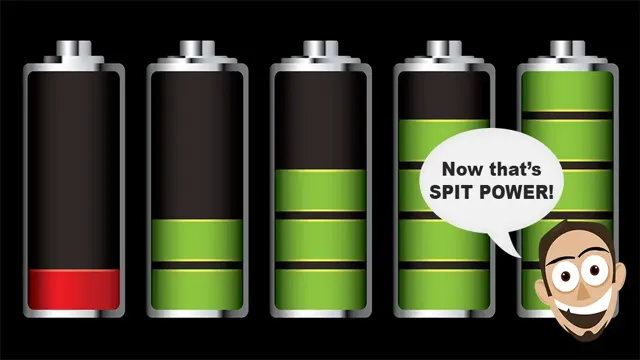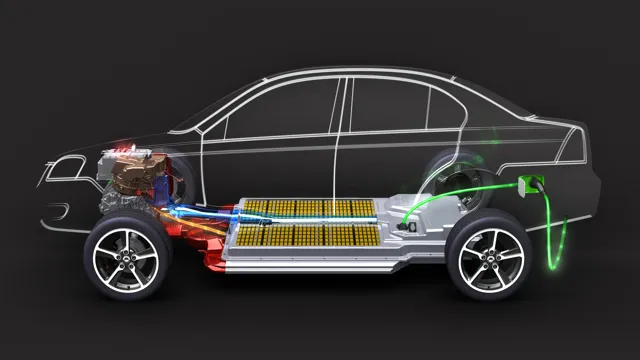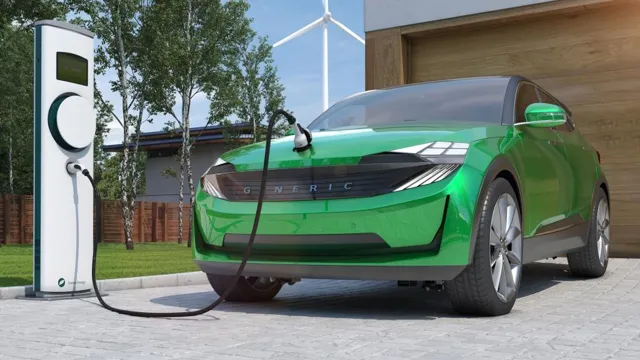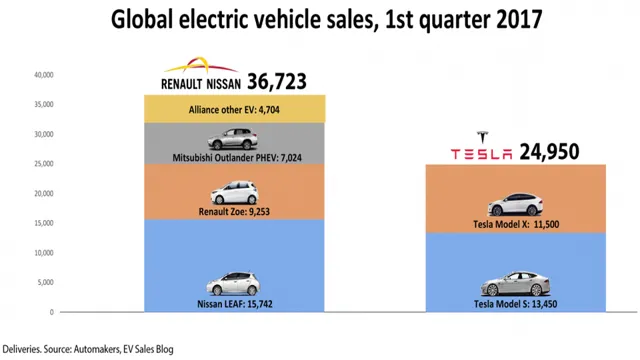Revolutionizing the Future of Transportation: The Electric Car Bio-Battery Solution
If you’re looking for a technology that will revolutionize the way cars are powered, look no further than bio-batteries. These innovative power sources are paving the way for a more sustainable future, with the potential to replace traditional batteries completely. With advancements in technology, scientists have found a way to use natural sources to create energy in a safer, cleaner, and more efficient manner.
Bio-batteries have already caught the attention of car manufacturers around the world, who are eagerly exploring their potential. In this blog, we’ll look at what bio-batteries are, how they work, and their potential to change the automotive industry.
What Are Bio-Batteries?
Electric car bio-batteries are an innovative approach to renewable energy. They are made from environmentally friendly materials, such as algae, which can convert sunlight into electrical energy through photosynthesis. Unlike traditional batteries, which are made from toxic substances like lead and lithium, bio-batteries are non-toxic and can be disposed of safely.
The performance of bio-batteries is still being improved, and while they may not yet be suitable for use in electric cars, they have shown promising results in powering low-energy devices such as sensors, medical implants, and wearables. The development of bio-batteries is a step towards sustainable energy solutions that could reduce our reliance on fossil fuels and help mitigate the impacts of climate change. As researchers continue to innovate and fine-tune this technology, it could play a vital role in powering a greener future.
Exploring the Technology Behind Bio-Batteries
Bio-batteries are a form of energy storage that utilize biological organisms to produce electricity. Unlike traditional batteries that rely on chemical reactions, bio-batteries depend on the metabolic processes of certain organisms such as bacteria or algae. These natural processes generate electrons that can be harnessed and used to power a variety of devices.
Bio-batteries have been developed for a range of applications, from powering small sensors to potentially even being used to charge electric vehicles in the future. The beauty of bio-batteries lies in their sustainability and the potential for renewable, clean energy. As more research is conducted on these exciting technologies, we may see more widespread adoption and integration of bio-batteries into our daily lives.
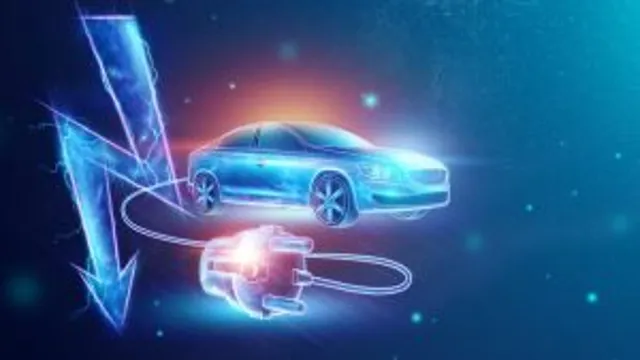
Benefits of Bio-Batteries in Electric Cars
Electric cars are revolutionizing the automotive industry, but they still rely heavily on traditional batteries that aren’t environmentally friendly to produce or dispose of. One solution to this problem is the use of bio-batteries, which are made from organic materials and use enzymes to generate electricity. Bio-batteries have several benefits for electric cars, including long-lasting power, low-cost production, and eco-friendliness.
They are also biodegradable, making them less harmful to the environment. In addition, bio-batteries can be recharged using organic matter, such as sugar, which is a more sustainable and renewable resource than traditional battery materials. By using electric cars with bio-batteries, we can reduce our reliance on non-renewable resources and reduce our carbon footprint.
Reducing Environmental Impact
Nowadays, electric cars are becoming more and more popular. But with their widespread use comes a new environmental challenge – the disposal of traditional batteries that contain toxic chemicals and heavy metals. That’s where bio-batteries come in.
Unlike traditional batteries, bio-batteries are made up of sustainable materials that can easily decompose without leaving any toxic waste behind. And the best part is that bio-batteries also have a longer lifespan than traditional batteries, which means they need to be replaced less often. This not only reduces environmental impact but also saves car owners money in the long run.
Additionally, bio-batteries are less likely to experience thermal runaway, a phenomenon that causes batteries to ignite and burst into flames. All in all, the adoption of bio-batteries in electric cars is a step towards a more sustainable future and a cleaner planet.
Improved Efficiency and Performance
Bio-batteries have gained popularity due to their ability to enhance the efficiency and performance of electric cars. These batteries generate electricity through the chemical reactions of enzymes and bacteria, which convert organic matter into energy. Compared to traditional lithium-ion batteries, bio-batteries are more sustainable, environmentally friendly, and can offer longer battery life.
Moreover, they are highly efficient, require minimal maintenance, and can last for longer periods without degradation. The use of bio-batteries in electric cars can significantly reduce carbon emissions and promote a sustainable future. Additionally, bio-batteries are cheaper to produce, making them an ideal alternative to lithium-ion batteries.
In conclusion, using bio-batteries in electric cars can provide numerous benefits, including improved performance, efficiency, and reduced costs, making them a viable option for a sustainable future.
Current Applications and Future Prospects
The concept of powering electric vehicles with bio-batteries is gaining steam in the world of renewable energy. Bio-batteries are essentially small, low-power devices that generate electricity from organic sources such as glucose, which could be derived from plants, waste or, even human bodies. Current applications of bio-batteries in electric cars are being tested and refined to make the technology viable for mainstream use.
Advancements in the technology have also led to the development of new types of bio-batteries, such as microbial fuel cells, that are more efficient at generating electricity and can be used in a wider range of applications. The future prospects of bio-batteries, especially in electric cars, look promising as advancements continue and the demand for sustainable energy solutions grows. With time, bio-batteries may become a game-changer in the race towards sustainable and zero-emission transportation.
Bio-Battery Powered Vehicles Around the World
Bio-battery powered vehicles are becoming increasingly popular around the world as people start to look for cleaner, more sustainable ways to commute. This new technology harnesses the power of living organisms to generate electricity, offering a practical and eco-friendly alternative to traditional fossil fuels. Currently, bio-battery powered vehicles are being used for a range of applications, including electric bicycles, boats, and even some cars.
One example is the BioBike, a bicycle that runs on a battery powered by microorganisms in the soil. Another example is the SeaCharger, a solar-powered boat that uses a bio-battery to store energy and can travel autonomously for weeks. While still a relatively new concept, the potential for bio-battery powered vehicles is vast, with many researchers exploring ways to scale the technology up for use in larger vehicles like buses and trucks.
With the continued development of this technology, we’re likely to see more and more bio-battery powered vehicles on our roads and waterways in the coming years, helping to reduce our carbon footprints and protect the environment.
Advancements and Potential for Future Use
Advancements and Potential for Future Use in technology have revolutionized numerous industries, and the healthcare sector has not been left behind. The current application of technology in healthcare includes electronic health records, telemedicine, wearable devices, and remote monitoring. These have improved healthcare delivery and patient outcomes by enabling personalized and timely care.
Additionally, technological advancements have led to the development of medical devices that improve diagnostic accuracy and precision. For instance, artificial intelligence has been used to analyze medical images, detect patterns, and identify anomalies that are difficult to detect using human analysis. In the future, technology will play a vital role in transforming how healthcare is delivered.
Virtual Reality (VR) and Augmented Reality (AR) could facilitate medical training and surgeries, improving accuracy and reducing complications. Furthermore, the application of nanotechnology could improve drug delivery and make it possible to create personalized medicines. Overall, the potential of technology in healthcare is vast, and its future employment will improve healthcare outcomes.
Considerations for the Future
As the world moves towards cleaner energy sources, electric cars have become increasingly popular. However, more research is needed to improve the efficiency and sustainability of the batteries that power these vehicles. One potential solution is the use of bio-batteries, which utilize enzymes to convert organic material into electrical energy.
These batteries have the potential to be more environmentally friendly and sustainable compared to current lithium-ion batteries. Additionally, bio-batteries have the potential to be less expensive and more readily available as they can be produced from common waste materials. While the technology is still in its early stages, research and development in this area could revolutionize the electric car industry and drive us towards a more sustainable future.
Challenges and Limitations
When it comes to the challenges and limitations of modern technology, one of the biggest considerations for the future is how we can continue to improve our current systems without sacrificing safety or privacy. With the rise of data breaches and cyber attacks, it’s clear that we need to take a more multifaceted approach to securing our digital infrastructures. Additionally, we must consider the impact of technology on job automation, and the potential loss of some industries entirely.
While it’s exciting to envision a future filled with cutting-edge technologies and breakthroughs, we must be mindful of the potential consequences as well. As we move forward, it’s up to us to strike a balance between innovation and protection, ensuring that our technology is used for the greater good, rather than as a tool for harm.
Opportunities for Research and Development
As technology continues to advance, there are countless opportunities for research and development in various fields. For instance, the field of medicine has witnessed unprecedented growth in the last decade, with more personalized treatments and precision medicine solutions emerging. As we move towards a more data-driven healthcare system, there is an opportunity to develop tools that can analyze large datasets.
While this may seem daunting, there are tremendous opportunities for researchers and developers in this area. By using machine learning algorithms, we can analyze data much faster and more accurately. This has the potential to improve diagnostics and ultimately lead to more effective treatments for patients.
As we continue to develop these tools, there are numerous ethical considerations that must be taken into account. However, with the right approach, the opportunities for research and development in medicine are endless.
Conclusion
In conclusion, the electric car bio-battery is like having a tiny, self-sustaining ecosystem under the hood of your car. It’s the ultimate in renewable energy, with the battery being charged by the very same organisms that decompose organic waste material. And let’s face it, there’s something undeniably cool about the idea of driving a car that’s fueled by the power of nature.
So, if you’re looking for a more sustainable and environmentally-friendly way to get around, embrace the electric car bio-battery and enjoy the ride!”
FAQs
What is an electric car bio-battery?
An electric car bio-battery is a type of battery that uses organic material to generate electricity and power the electric vehicle.
How does an electric car bio-battery work?
An electric car bio-battery works by breaking down organic material, such as food waste or agricultural byproducts, using microorganisms to produce electricity.
Are electric car bio-batteries more sustainable than traditional batteries?
Yes, electric car bio-batteries are more sustainable than traditional batteries as they use organic materials which can be continuously replenished, unlike the finite resources used in traditional batteries.
What are the advantages of using an electric car bio-battery?
The advantages of using an electric car bio-battery includes lower costs, reduced environmental impact, and increased energy efficiency as they are able to produce electricity using renewable resources.

